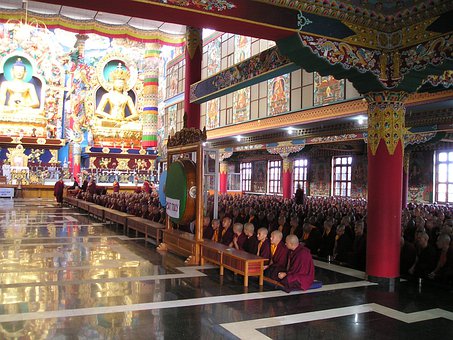The cessation of suffering means to eradicate all defilements. When the cloudy sky is blown by a wind, the clear, blue sky will appear. Likewise, when defilements and negative karma are eliminted by renunciation, bodhicitta and the view of emptiness, the wisdom of buddhas, aka luminous buddha nature, will appear. This is referred to as the cessation of suffering.
~Depicted from LUMINOUS WISDOM BOOK SERIES











